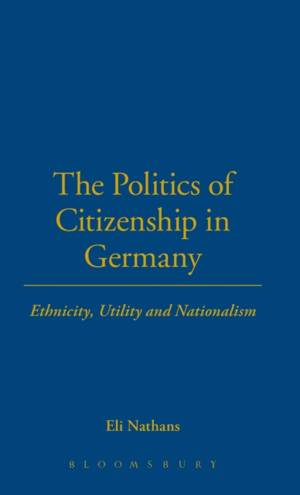
- Afhalen na 1 uur in een winkel met voorraad
- Gratis thuislevering in België vanaf € 30
- Ruim aanbod met 7 miljoen producten
- Afhalen na 1 uur in een winkel met voorraad
- Gratis thuislevering in België vanaf € 30
- Ruim aanbod met 7 miljoen producten
Zoeken
The Politics of Citizenship in Germany
Ethnicity, Utility and Nationalism
Eli Nathans
Hardcover | Engels
€ 271,45
+ 542 punten
Omschrijving
Why did German states for so long make it extraordinarily difficult for foreigners who were not ethnic Germans to become citizens? To what extent was this policy a product of popular national feeling, and to what extent was it shaped by the more state-centered goals of the political elite? In what ways did Nazi citizenship policies perpetuate, or break with, the actions of earlier German states? What does this larger historical context suggest about the causes for, and implications of, the recent and dramatic liberalization in German citizenship laws?German states have long exercised tight control over which foreigners might become citizens. Because Germans felt a cultural attachment to other ethnic Germans, it has been argued, German national states naturally welcomed the immigration of ethnic Germans and sought to prevent the naturalization of individuals who were considered foreign. It is true that ethnic nationalism came to play a and after 1918 the key role in German citizenship and naturalization policies. But ethnicity was far from the only criterion employed to distinguish desirable from undesirable subjects or citizens.In a study that begins in the early nineteenth century and reaches the dramatic changes of the 1990s, the author challenges the traditional interpretation of the role of ethnicity. He shows that appeals to ethnic solidarity often masked more political objectives. Other factors affecting the politics of citizenship included German states efforts to mold and improve society and to safeguard their own grip on power; changing conceptions of economic and military utility; the personality and political aims of Bismarck; the international conflict with Britain, France, and Russia; anti-Semitism and the world wars. While other authors have stressed consensus within German society, this account focuses on conflict.
Specificaties
Betrokkenen
- Auteur(s):
- Uitgeverij:
Inhoud
- Aantal bladzijden:
- 288
- Taal:
- Engels
Eigenschappen
- Productcode (EAN):
- 9781859737767
- Verschijningsdatum:
- 1/07/2004
- Uitvoering:
- Hardcover
- Formaat:
- Genaaid
- Afmetingen:
- 144 mm x 223 mm
- Gewicht:
- 489 g

Alleen bij Standaard Boekhandel
+ 542 punten op je klantenkaart van Standaard Boekhandel
Beoordelingen
We publiceren alleen reviews die voldoen aan de voorwaarden voor reviews. Bekijk onze voorwaarden voor reviews.








